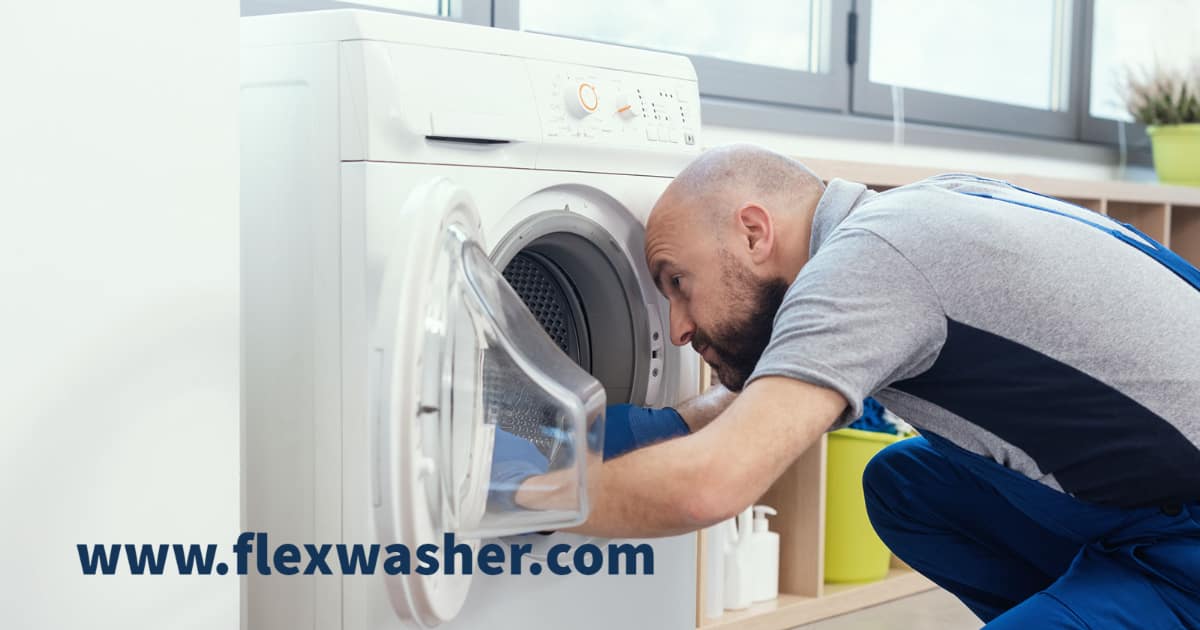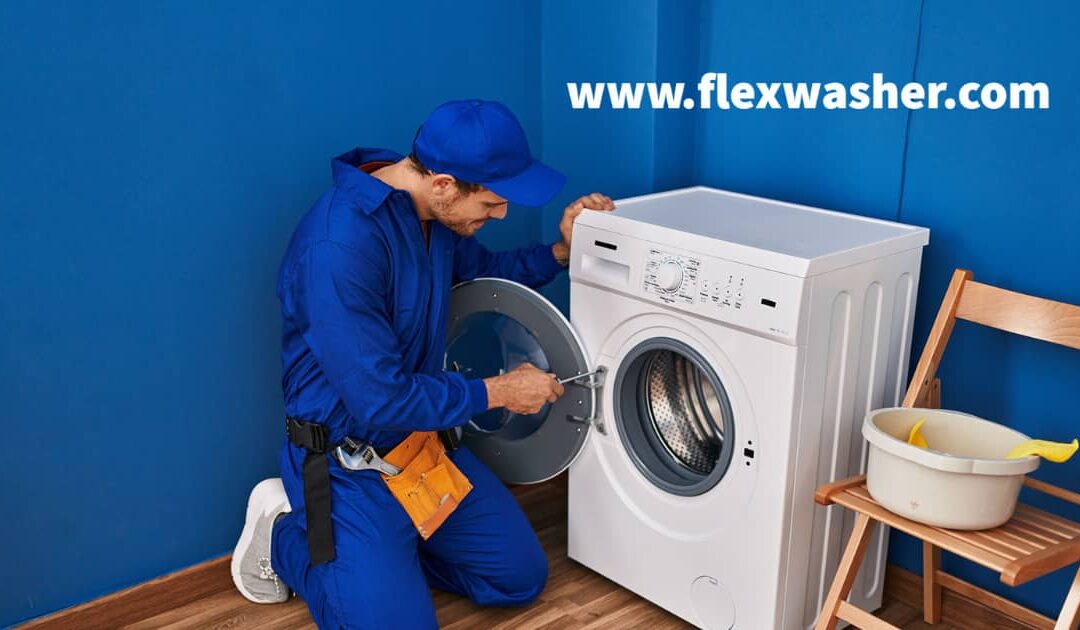Essential Commercial Laundry Machine Maintenance Steps
Running a successful laundry business goes beyond just having top-notch commercial laundry machines. It’s about understanding your machines and knowing how to maintain them to ensure they operate at their peak performance.
This not only guarantees quality service to your customers but also extends the lifespan of your machines, saving you money in the long run.
Introduction
Importance of Regular Laundry Machines Maintenance
Regular laundry machines maintenance is a non-negotiable aspect of running a laundry business. It’s the secret sauce to ensuring your machines deliver optimal performance, last longer, and save you money on unnecessary repairs and replacements.
But what does maintenance entail? And how can you effectively carry it out?
Overview of Essential Maintenance Steps
In this comprehensive guide, we’ll walk you through 10 essential maintenance steps that every laundry business owner should know.
From regular inspection and cleaning to calibration, load balancing, and safety checks, we’ve got you covered. So, let’s dive in and explore how you can keep your laundry machines in top shape.

Understanding Your Laundry Machines
Types of Commercial Laundry Machines
Before we delve into the maintenance steps, it’s crucial to understand the different types of commercial laundry machines.
Whether you’re using washing machines, dryers, ironing machines, or steam presses, each machine has its unique features and maintenance needs.
Understanding these differences is the first step to effective maintenance.
Key Features of Laundry Machines
Commercial laundry machines come with a range of features designed to enhance efficiency and deliver top-quality results.
These include load balancing, spin cycles, temperature settings, and safety features. But how do these features work? And how can you ensure they’re always functioning optimally? That’s what we’ll explore in the next section.
Now that we’ve set the stage, let’s delve into the heart of the matter: the essential maintenance steps for your laundry machines.
Essential Laundry Machine Maintenance Steps
Proper maintenance of your laundry machines involves a series of steps that ensure every component of your machine is working optimally.
Here are the key steps you should incorporate into your maintenance routine:
Regular Inspection and Cleaning
Regular inspection and cleaning of your laundry machines are crucial. Dust and lint can accumulate in various parts of the machine, affecting its performance.
Ensure you clean the lint filter, drum, and exterior regularly. Also, inspect the hoses and connections for any signs of wear or leaks.
Calibration of Laundry Machines
Calibration ensures your machines are delivering the right amount of water and detergent for each load.
Regularly check the calibration settings of your machines and adjust them if necessary. This not only ensures efficient cleaning but also saves on water and detergent costs.
Load Balancing and Spin Cycle Adjustments
Improper load balancing can cause your machines to vibrate excessively or even move. This can lead to wear and tear. Make sure to evenly distribute the laundry in the machine.
Also, adjust the spin cycle settings according to the type of fabric being washed to prevent damage.
Temperature Setting Checks
The right temperature setting is crucial for effective cleaning and fabric care. Regularly check the temperature settings of your machines and adjust them based on the laundry requirements. Also, ensure the heating element is working properly.
Noise Level Monitoring and Troubleshooting
Unusual noises can be a sign of a problem with your laundry machines. It could be due to a loose part, a problem with the motor, or an issue with the drum or belt.
Regularly monitor the noise levels of your machines and troubleshoot any unusual sounds immediately.
Safety Feature Inspections
Your laundry machines come with various safety features, such as door locks, overflow controls, and emergency stop buttons.
Regularly inspect these features to ensure they’re working properly. This not only ensures the safe operation of your machines but also protects your staff and customers.
By following these essential maintenance steps, you can ensure your laundry machines are always in top shape, delivering efficient and quality service to your customers.
Download Free
Google Ads PPC Strategies Tailored for Laundry Industry
Whether you are starting to research Google Ads (Pay-per-Click) or are ready to set up your first campaign, use these workable and proven strategies to get started. Scale up your lead generation efforts and achieve unparalleled results. Reach Idea Customers, Convert Clicks into Customers – Let's Optimize Google Ads Campaign Today!

Dealing with Laundry Machine Repairs
Despite regular maintenance, your laundry machines may occasionally need repairs. Here’s how to identify common issues, know when to replace parts, and when to call a technician:
Identifying Common Issues
Being able to identify common issues with your laundry machines can save you time and money. Here are a few signs to look out for:
- Excessive Noise: This could indicate a problem with the drum or motor.
- Water Leaks: This could be due to a loose connection or a problem with the hoses.
- Machine Not Starting: This could be an electrical issue or a problem with the machine’s control panel.
- Inefficient Cleaning: This could be due to incorrect calibration or a problem with the water inlet.
When to Replace Parts
Some parts of your laundry machines will wear out over time and need to be replaced. It’s important to replace these parts promptly to prevent further damage.
Parts that commonly need replacement include belts, hoses, filters, and seals. Always use high-quality replacement parts to ensure the longevity and performance of your machines.
When to Call a Technician
While some issues can be fixed with a simple repair or part replacement, others may require the expertise of a trained technician.
If your machine is not working despite your troubleshooting efforts, or if you’re unsure about a repair, it’s best to call a technician. A professional can accurately diagnose and fix the problem, ensuring your machine is back up and running in no time.
Remember, timely repairs can prevent minor issues from escalating into major problems that could lead to costly replacements.

Preventive Maintenance for Laundry Machines
Preventive maintenance is all about taking proactive steps to prevent issues before they occur. It’s an essential part of ensuring the longevity and optimal performance of your laundry machines. Here’s how to implement preventive maintenance:
Regular Service Calls
Scheduling regular service calls with a professional technician is a great way to keep your machines in top shape.
A technician can thoroughly inspect your machines, identify any potential issues, and fix them before they escalate. This not only ensures the smooth operation of your machines but also extends their lifespan.
Maintenance Schedules and Checklists
Creating a maintenance schedule and using a checklist can help ensure you don’t miss any important maintenance tasks.
Your schedule should include daily, weekly, and monthly tasks, such as cleaning, inspection, and calibration. A checklist can serve as a handy reminder of what needs to be done and help you keep track of your maintenance activities.
Technician Training
If you have an in-house technician, regular training is crucial. This ensures they’re up-to-date with the latest maintenance techniques and can effectively handle any issues with your machines. If you don’t have a technician, consider sending your staff for basic maintenance training. This can help them identify and fix minor issues, saving you time and money.
Remember, preventive maintenance is an investment that pays off in the long run by reducing repair costs and extending the life of your machines.
Enhancing Efficiency and Lifespan of Laundry Machines
Efficiency and longevity are key considerations when it comes to laundry machines. Here are some tips to enhance the efficiency of your machines, maximize their lifespan, understand warranties, and know when to consider equipment upgrades:
Energy Efficiency Tips
Energy-efficient laundry machines not only save you money on utility bills but also contribute to a greener environment. Here are some tips:
- Use the right amount of detergent: Excessive detergent can make your machine work harder, consuming more energy.
- Use cold water: Heating water consumes a lot of energy. Use cold water where possible.
- Maximize load capacity: Running a machine that’s not fully loaded wastes energy.
Water Usage Optimization
Optimizing water usage can significantly reduce your utility bills. Ensure your machines are calibrated to use the right amount of water for each load. Also, consider using high-efficiency machines that use less water.
Maximizing Machine Lifespan
Regular maintenance, timely repairs, and using high-quality replacement parts can significantly extend the lifespan of your laundry machines.
Also, ensure your machines are used and handled properly to prevent unnecessary wear and tear.
Understanding Machine Warranties
Warranties can save you a lot of money on repairs and replacements. Ensure you understand the terms of your machine warranties, what they cover, and for how long. Keep all warranty documents in a safe place.
When to Consider Equipment Upgrades
Upgrading your equipment can enhance efficiency and performance. If your machines are old and frequently breaking down, or if there are newer models with better features and energy efficiency, it might be time to consider an upgrade.
Remember, enhancing the efficiency and lifespan of your machines not only improves your service quality but also saves you money in the long run.
Conclusion
Recap of Essential Maintenance Steps
In conclusion, maintaining your laundry machines involves a series of essential steps:
- Regular Inspection and Cleaning: Keep your machines clean and check for any signs of wear or leaks.
- Calibration: Ensure your machines are using the right amount of water and detergent.
- Load Balancing and Spin Cycle Adjustments: Distribute laundry evenly in the machine and adjust spin cycles based on fabric type.
- Temperature Setting Checks: Regularly check and adjust temperature settings based on laundry requirements.
- Noise Level Monitoring and Troubleshooting: Monitor noise levels and troubleshoot any unusual sounds.
- Safety Feature Inspections: Regularly inspect safety features to ensure they’re working properly.
The Impact of Regular Maintenance on Your Laundry Business
Regular maintenance not only keeps your machines in top shape but also significantly impacts your laundry business.
It enhances service quality, extends the lifespan of your machines, reduces repair costs, and saves you money on utility bills. In essence, laundry machines maintenance is an investment that pays off in the long run.
So, take the time to understand your machines, implement the essential maintenance steps, deal with repairs promptly, and take proactive measures to prevent issues.
Your machines, your customers, and your bottom line will thank you.
FAQs
Why is regular maintenance of laundry machines important?
Regular maintenance ensures optimal performance, extends the lifespan of the machines, reduces repair costs, and saves on utility bills.
What are some essential maintenance steps for laundry machines?
Essential steps include regular inspection and cleaning, calibration, load balancing, temperature checks, noise monitoring, and safety inspections.
How can I identify common issues with my laundry machines?
Look out for signs like excessive noise, water leaks, the machine not starting, or inefficient cleaning.
When should I replace parts of my laundry machines?
Parts like belts, hoses, filters, and seals should be replaced when they wear out to prevent further damage.
When should I call a technician for my laundry machines?
Call a technician if your machine isn’t working despite troubleshooting, or if you’re unsure about a repair.
What is preventive maintenance for laundry machines?
Preventive maintenance involves taking proactive steps to prevent issues, like scheduling regular service calls and using maintenance schedules and checklists.
How can I enhance the efficiency of my laundry machines?
Use the right amount of detergent, use cold water where possible, and maximize load capacity to enhance energy efficiency.
When should I consider upgrading my laundry equipment?
Consider an upgrade if your machines are old and frequently breaking down, or if newer models offer better features and energy efficiency.
Promote Your Laundry Business Online with Proven Online Marketing Strategies!
Unlock the Secrets of Google Ranking Optimization Strategies , Fast-Track Your Laundry Business Success with Mastermind Mr. Ram
Related Articles
Which AI Tools Are Used by Top SEO Agencies in the AI Transformation Era?
AI isn’t just disrupting SEO — it’s rebuilding it from the ground up. The world’s top SEO agencies are no longer relying on manual spreadsheets or...
Hire LLM Optimized SEO Service & Rank Faster | Get Yours
Every single day you postpone, your competitors are capturing market share in a new arena: AI Answer Engines. The digital landscape has fundamentally...
LLM Retrievable Content Creation Services: Future-Proof Your SEO with AI Agent-Ready Content
As search evolves beyond simple keyword matching, traditional SEO strategies are becoming obsolete. LLM retrievable content creation services are...
AI Powered SEO Services: Transform Your Digital Visibility and Rank Smarter
In today's fast-paced digital landscape, businesses struggle with traditional SEO methods that often fall short in efficiency and...
AI Powered Marketing for Laundry, Dry cleaners Services Business with Smart AI Automation
Why Read This? AI Marketing Is Changing Laundry Businesses Are you a laundry or dry cleaning business owner looking to grow faster in today’s AI era?...
AI-Driven SEO Services: A Game Changer for Laundry & Dry Cleaning Businesses
AI-Driven SEO Services: How Laundry & Dry Cleaning Businesses Win Online Imagine a customer urgently needing their clothes cleaned. They pull out...
Disclaimer: The brands / costs / Information mentioned in this blog are the recommendations provided by the author. FlexWasher-Laundry Website does not claim to work with these brands / represent them / or are associated with them in any manner. Investors and prospective franchisees are to do their own due diligence and in-depth research before investing or Purchase in/on a business/Product/Services at their own risk and discretion. FlexWasher-Laundry Website or its Directors disclaim any liability or risks arising out of any transactions that may take place due to the information provided in this blog.


